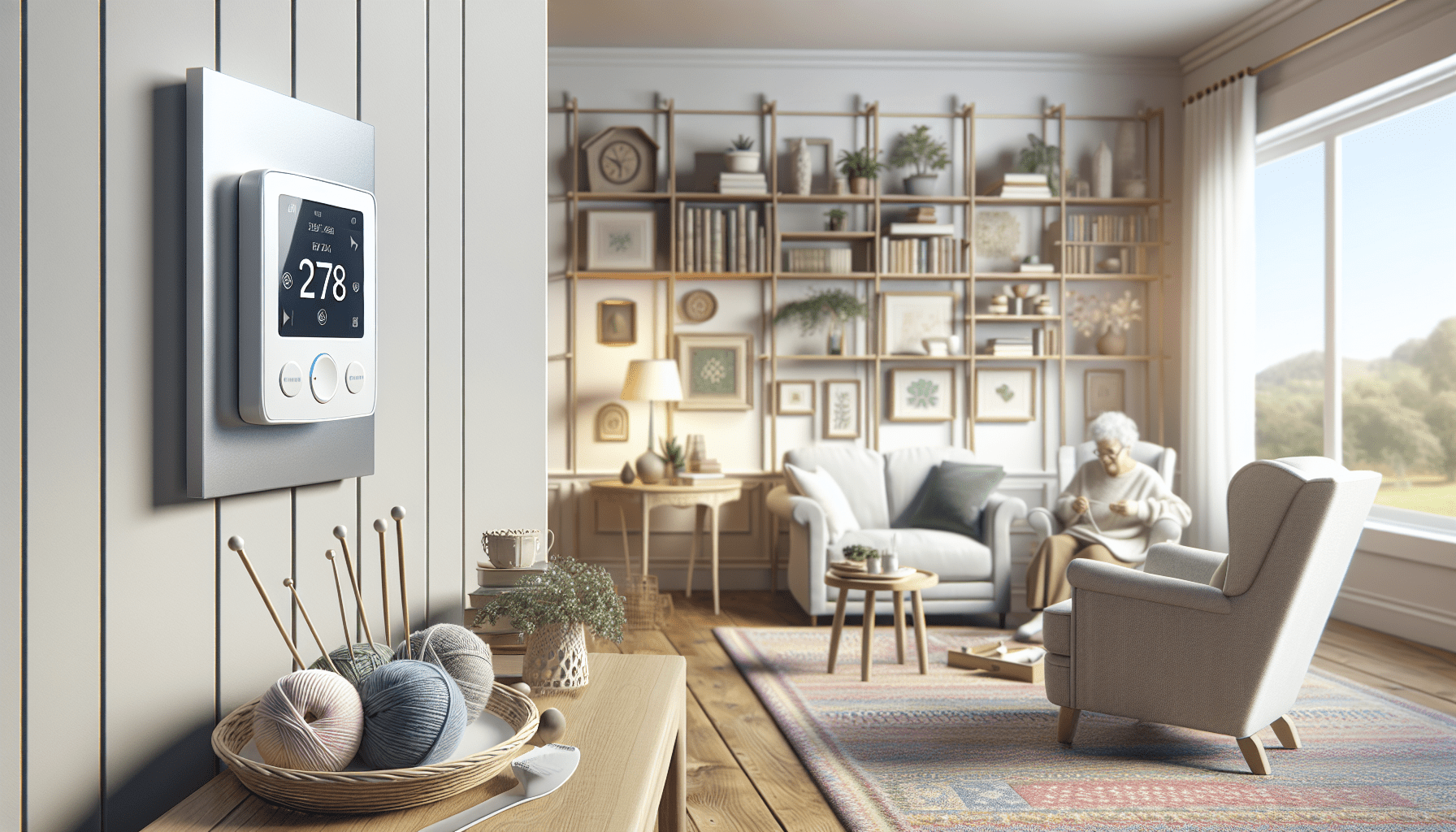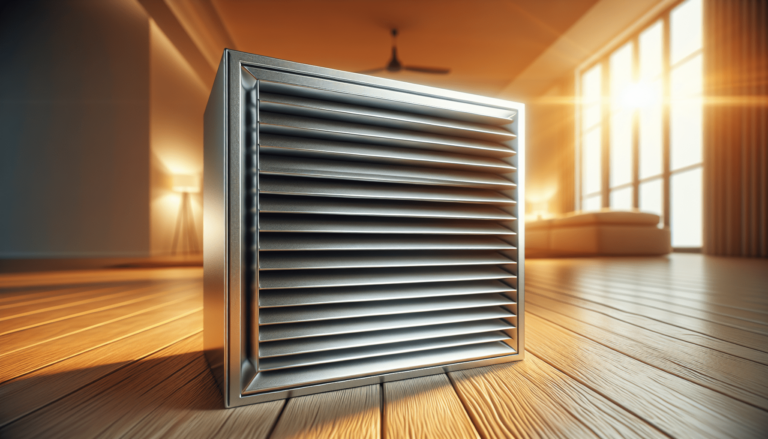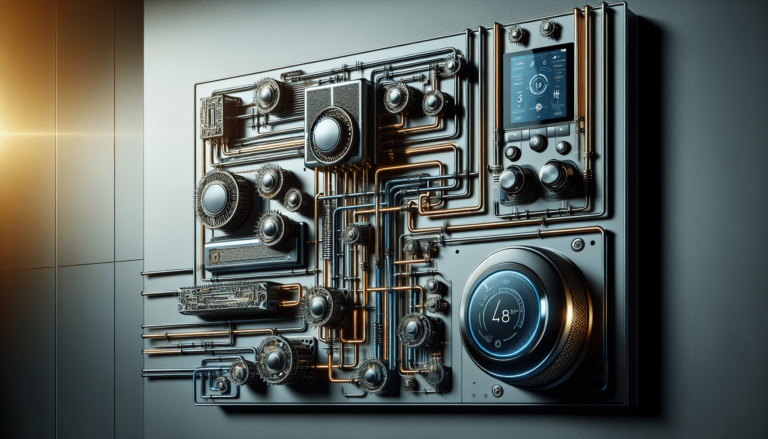

HVAC Services
Get Professional Repairs From The Area's Trusted HVAC Technicians. Ask About Our Services! We Offer Professional Heating & Cooling System Repairs And Guarantee Long-Lasting Results.
Got Question? Call us: (850) 678-2665Financing
Optimizing HVAC For Homes With Elderly Residents
Ensuring the comfort and health of elderly loved ones hinges on an optimized HVAC system. Discover how to manage temperature, humidity, and air quality effectively.

Have you ever thought about how much the comfort of your elderly loved ones at home depends on your HVAC system? Aging bodies are more sensitive to temperature fluctuations, making an optimized HVAC system essential for their health and well-being. An effectively managed HVAC system doesn’t just provide comfort; it can also help prevent various health issues such as respiratory problems, dehydration, and even heat stroke.

Why HVAC Optimization is Crucial for Elderly Residents
As people age, their bodies become less efficient at temperature regulation. This means that what feels like a ‘normal’ temperature for a younger person might feel unbearably hot or cold for someone older. Elderly residents are more susceptible to drafts, humidity changes, and temperature fluctuations. Therefore, maintaining a stable and comfortable indoor environment is critical for their health.
Health Risks of Poor Temperature Control
The importance of temperature control can’t be overstated. Elderly people are more prone to dehydration and heatstroke in hot weather and hypothermia during colder months. Here’s a quick table that shows potential health risks due to poor HVAC management:
| Temperature Issue | Health Risk | Symptoms |
|---|---|---|
| Too Hot | Heatstroke, Dehydration | Dizziness, Nausea, Confusion |
| Too Cold | Hypothermia, Respiratory Issues | Shivering, Weak Pulse, Confusion |
Temperature Settings for Optimal Comfort
Determining the ideal temperature for elderly residents involves balancing comfort with health needs. A consistent indoor temperature between 68°F and 74°F (20°C to 23°C) is recommended for most older adults. It’s also crucial to avoid sudden temperature changes that can stress the body. Consistency is key.
Seasonal Adjustments
For optimal comfort, adjust your HVAC settings seasonally. In winter, you might find that a slightly higher temperature helps to counteract the cold outside. During summer, a lower setting, but not too low, can help in keeping the indoor environment cool without causing discomfort or health risks. Automated or programmable thermostats can help maintain these consistent temperatures effortlessly.
Humidity Levels – The Unsung Hero
Humidity might not be something you often think about, but it plays a critical role in indoor comfort. Low humidity can result in dry skin and respiratory issues, while high humidity levels can make the home feel stuffy and lead to mold growth. Aim for a relative humidity level between 30% and 50%.
Tools to Monitor and Control Humidity
- Humidifiers: Useful for increasing humidity during dry winter months.
- Dehumidifiers: Essential for reducing excessive moisture during humid seasons.
- Hygrometers: Devices that measure humidity levels, ensuring you stay within the ideal range.
Air Quality: Not Just About Temperature
Indoor air quality is another often overlooked aspect of HVAC optimization. Dust, allergens, and airborne pathogens can exacerbate respiratory issues, particularly in elderly individuals. Regular maintenance of filters and proper ventilation is essential.
Types of HVAC Filters
HVAC filters play a crucial role in maintaining air quality. Here’s a quick rundown of common types:
| Filter Type | Description | Lifespan |
|---|---|---|
| Fiberglass | Budget-friendly, less efficient | 1 month |
| Pleated | Higher efficiency, captures more particles | 3 months |
| HEPA | High Efficiency Particulate Air, captures 99.97% of particles | 6-12 months |
| UV Light | Kills bacteria and viruses | Varies with use |
Changing or cleaning filters regularly can dramatically improve indoor air quality, making the home healthier for everyone, especially older residents.

Zoning Systems for Personalized Comfort
One size doesn’t fit all, and the same goes for HVAC settings in different parts of the house. A zoning system divides your home into zones, each with its thermostat. This allows for customized temperature settings in different parts of your home, ensuring every room is comfortable.
Benefits of Zoning Systems
- Energy Efficiency: Heating or cooling only the used areas saves energy.
- Personalized Comfort: Different family members can set their preferred temperatures.
- Reduced Wear and Tear: Less strain on the HVAC system increase its longevity.
Regular Maintenance and Upkeep
Proper maintenance ensures that your HVAC system runs efficiently, reducing the risk of unexpected breakdowns and extending its lifespan. Schedule regular check-ups and tune-ups to keep the system in tip-top shape. Routine checks typically involve:
- Inspecting and replacing filters
- Checking the thermostat settings and controls
- Cleaning the coils and fans
- Ensuring proper airflow and ventilation
The Role of Professional Services
For optimal performance, consider trusting professionals like Tempacure Heating and Air Conditioning. Located at 325 Cedar Ave S, Suite B, Niceville, FL 32578, they specialize in offering HVAC solutions tailored to meet the needs of homes with elderly residents. Reach out to them at (850) 678-2665 or through their website Tempacure HVAC for expert advice and services.
Smart HVAC Solutions for Modern Homes
In this age of technological advancements, smart HVAC systems can significantly enhance comfort and convenience. These systems can learn individual preferences, adjust temperatures based on occupancy, and even send maintenance alerts.
Benefits of Smart HVAC Systems
- Energy Savings: Automated adjustments and remote control contribute to energy-efficient operations.
- Convenience: Control the system via smartphone apps from anywhere.
- Custom Schedules: Set specific heating or cooling schedules based on your daily routine.
Insulation: The Silent Contributor
Proper insulation can make a noticeable difference in maintaining indoor temperatures. It helps keep the warm air in during winter and the cool air in during summer. Check your home’s insulation, especially in the attic and walls, to ensure it is adequate.
Types of Insulation
| Insulation Type | Best For | Lifespan |
|---|---|---|
| Spray Foam | Seals gaps efficiently | 20-30 years |
| Fiberglass Batt | Budget-friendly, easy to install | 15-20 years |
| Cellulose | Eco-friendly, made from recycled materials | 20-30 years |
Conclusion: Ensuring Comfort and Health
Optimizing HVAC systems for homes with elderly residents is more than just a matter of comfort; it’s a matter of health and well-being. Paying attention to temperature settings, humidity levels, air quality, and regular maintenance can make a significant difference. Consider implementing smart HVAC systems and proper insulation to further enhance comfort and efficiency.
When in doubt, don’t hesitate to reach out to professionals like Tempacure Heating and Air Conditioning for personalized advice and solutions. Ensuring your elderly loved ones are comfortable and safe should always be a top priority, and with these tips, you’re well on your way to achieving that.







